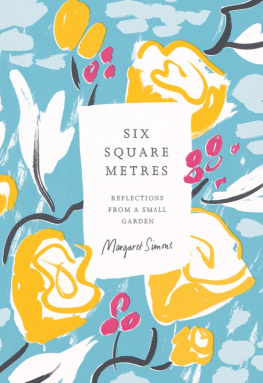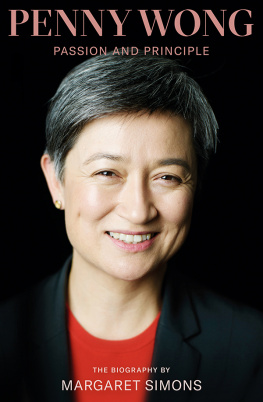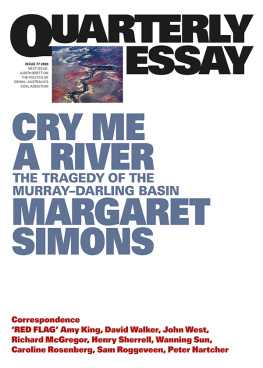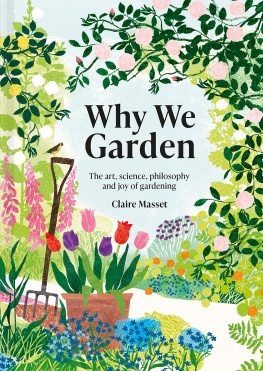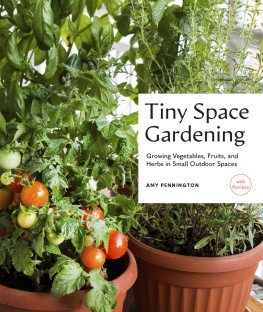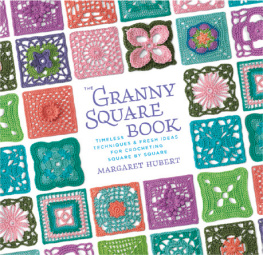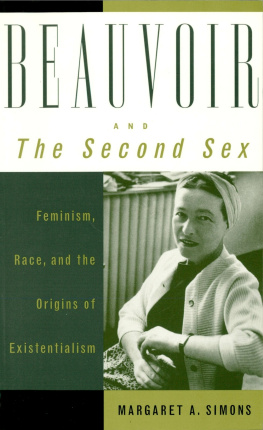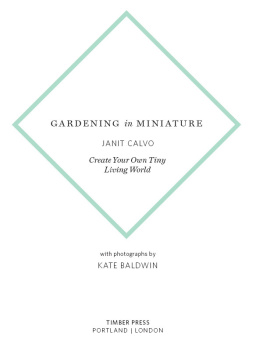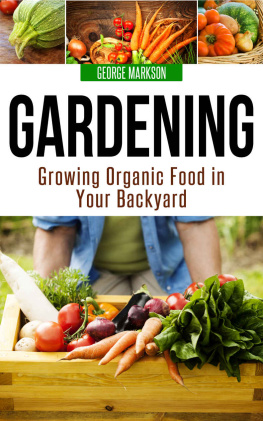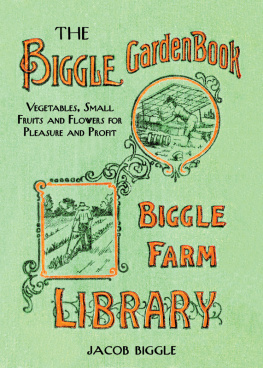
SIX SQUARE METRES
Margaret Simons is a freelance journalist and author and director of the Centre for Advancing Journalism at the University of Melbourne. She writes about the media for a number of publications and has published eleven books including The Content Makers and more recently Malcolm Fraser: the political memoirs , written with the late former prime minister. This won book of the year and best non-fiction book at the 2010 NSW Premiers Literary Awards. Her most recent book before this one was Self Made Man , a biography of media proprietor Kerry Stokes, which won the history prize in the WA Australian Premiers Literary Awards. In the past Simons has worked for The Age and The Australian newspapers. As a freelancer, she has had work published in dozens of magazines and newspapers in Australia and overseas.
TO THE FAMILY SHRUBBERY
Scribe Publications Pty Ltd
1820 Edward St, Brunswick, Victoria, Australia 3056
2 John St, Clerkenwell, London, WC1N 2ES, United Kingdom
First published by Scribe 2015
Copyright Margaret Simons 2015
All rights reserved. Without limiting the rights under copyright reserved above, no part of this publication may be reproduced, stored in or introduced into a retrieval system, or transmitted, in any form or by any means (electronic, mechanical, photocopying, recording or otherwise) without the prior written permission of the publishers of this book.
A CIP record for this title is available from the National Library of Australia
scribepublications.com.au
scribepublications.co.uk

They say that you reap what you sow. This is one of those annoying aphorisms that are at once absurdly obvious and very cruel. It can be read to mean that we earn our misfortunes. If you are in the middle of a misfortune, this is not something you want to be told. We all have faults, shameful compulsions, blindspots, and secrets but it is harsh, sometimes, to be told that our lives are of our own making. What about all the things you sow that dont germinate? The aphorism-writer would doubtless say that this was because of your neglect. You did not water sufficiently. You failed to achieve that mantra of the scary gardening books, eliminate all perennial weeds. You failed to achieve a fine tilth. (I challenge anyone to manage to throw the word tilth into casual conversation. It belongs only in intimidating texts on cultivation and in Scrabble games.) The aphorism-writer fails to account for the fact that sometimes seed is dead. The fact that dried up specks of seed grow into plants is, like most miracles, not to be relied upon. Things die, or fail to live.
And what about all the things you didnt sow but that you end up reaping anyway? Aphorism writers and the authors of depressing gardening books fail to acknowledge bad luck, and the fact that some of the things we sow are those we didnt even realise we had with us like the dandelion seeds that float in the wind, and the burrs that stick to our socks, and the couch grass that adheres to our boot, until it gracefully relinquishes its hold to take root. A fine tilth for one is a fine tilth for all. In fact, nothing is more guaranteed than a fine tilth to ensure that you will reap not only what you have sown, but opportunistic weeds as well.
Normally, gardening aphorisms and parables are full of earthy truth, but this one should be re-written. Sometimes you reap what you sow. Sometimes you reap what other people sowed. Sometimes you havent got a clue what you are sowing, and sometimes you just get lucky, or unlucky. All these things are true of life, as of gardening.
The cause of these reflections is beginning this little book on gardening, and trying to think why it is that I continue to garden, even though I am not very good at it. Why does it give me such pleasure and, let me admit, such frustration and misery? The aphorism, and so many other sayings and metaphors, tell me why. Gardening is not only a way of passing the time and growing useful and beautiful things, it gives me the schema for thinking about life. I am now in my 50s. I spend quite a bit of time reflecting on the things that I have sown and the things that I have reaped, and all the accidents along the way.
If you are to read on, then you need to agree to some terms of engagement. I am not an expert, and this is not a how-to book. At times in the past, when I have written about my garden, I have been approached by the Open Gardens scheme to see if I would be interested in throwing my premises open to the public. I have never done so and will never do so. The idea fills me with horror. My garden is always a mess and a failure as much as a success.
I hate all garden orthodoxies. Well, that is not quite true. I was drawn to permaculture for a while, but it is a bit like visiting Ikea. I like the IDEA of living like that, in a virtuous, well managed, and tidy fashion, but the reality of trying to achieve it is too much, and leaves me feeling inadequate. Permaculture at its worst is guilt inducing, leading one to question the utility of a rose.
So do not read on if you want to know how to garden. Rather, this little book is a record of my gardening-related reflections over the course of the last few years. Some parts have been published before in Melbourne Review and Adelaide Review , where I had a gardening column for a while. Some parts refer back to earlier parts of my gardening life, but by and large what you will read here is a collection of the things I think about when I am in the garden, or wishing I was in the garden.
I am best known as a journalist. I write on politics and media, and I have written biography. This can make enemies. Over the years, some commentators have suggested that my views on public life and journalism are to be taken less seriously because I have also written about compost, vegetables, and chooks. One is either a serious journalist or a gardening writer, apparently. Not both. Well, bollocks to that. In public I sometimes use the line that what unites my journalism and my gardening is muckraking. That usually gets a laugh. The truth is more fundamental, and harder to express.
Through the years since I planted my first seed, I have found that the seasonal metaphors, the gardening-related insights, are the ones that make most sense to me. I talk about the first drafts of my books as being like compost heaps fetid messes that might, nevertheless, eventually mature into useful stuff. I talk to my children, now navigating the transition from childhood to adulthood, about growth and pruning. It has been this way for many years now.
Id like to say it started in childhood, but that wouldnt be true. My mother was a gardener, but my sister and I regarded her lawn mowing, her trips to the country to collect horse manure, and her spreading of blood and bone with disgust and contempt.
I left home in my early twenties and fetched up in the inner suburbs of Melbourne in a share house that had a tiny backyard with a single garden-bed. It had been used by a previous resident to grow marijuana, and the crop had gone wild. Operation Noah was coming around. Back then, this was an annual police campaign in which people were encouraged to dob in drug growers and dealers. In a fit of paranoia, the housemates ripped out the marijuana remnants, leaving bare earth.
The house had an outside toilet, which meant that several times a day I passed that sad, little, bare garden bed. I am not sure what made me do it, but one weekend I bought a packet of runner bean seeds at the supermarket and planted them out. Within days they were above the earth, their little leaves unfurling from the spear shapes that had pierced the soils crust. Weeks later, we were harvesting handful after handful of crisp green pods, and I was hooked.
Next page
